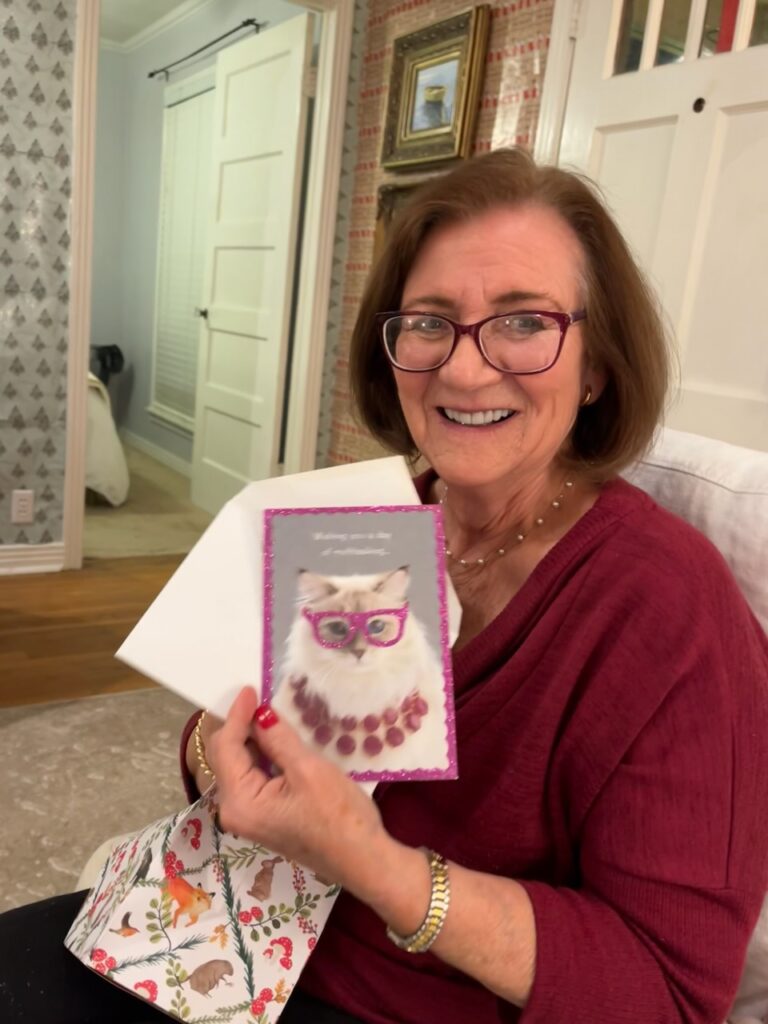
Remembering Doris Marie Barton: A Life of Love and Advocacy
At the Blind Institute of Technology (BIT), we are constantly inspired by the stories of people who bring purpose and heart to their lives. One such story is that of Doris Marie Barton – a beloved grandmother, educator, and advocate who left a lasting legacy.
A Life Well Lived
Born in 1942 in Marshall, Texas, Doris spent her early years in a close-knit community before finding her calling as an English teacher later in life. Known affectionately as “Grammé,” she was a woman of deep faith and unwavering curiosity, always seeking answers and solutions.
In preparation for Y2K, Doris and her husband Gerald moved to a farm in Athens, Texas, transforming it into a sanctuary for her family and a haven for animals. Taylor, her granddaughter and BIT’s Apprenticeship Program Manager, fondly recalls cooking with her and feeding sugar cubes to horses, picking blackberries, and watching ducks waddle through the property. Doris’s love for animals ran so deep that she even dedicated a “cat room” in her garage to care for stray kittens.
Just over an hour outside of Dallas, Taylor remembers visits to Athens as feeling like a mini-vacation – an escape from the busy city to acres of peaceful countryside. Doris loved pet-sitting, finding joy in caring for animals, and creating a welcoming environment for Taylor and her family.
Grace Through Challenges
In her later years, Doris faced vision loss due to macular degeneration, which gradually worsened over the last five years of her life. Despite this, she remained resilient, finding gratitude in the treatments she received and maintaining her signature optimism.
Doris never let her challenges define her. Instead, she focused on learning about the blind and low-vision community, determined to understand and connect with their experiences. This shared understanding brought her closer to Taylor, who also lives with vision loss.
Taylor’s Journey of Advocacy
Doris played a crucial role in shaping Taylor’s perspective on disability and inclusion. Diagnosed with retinitis pigmentosa at just 15, Taylor faced challenges that Doris helped her navigate with love and encouragement. Doris also connected Taylor with others experiencing vision loss, helping her forge meaningful connections and build confidence.
Cooking was another way Doris and Taylor bonded. As Doris began struggling to read recipes, they found joy in learning new ways to cook together. From birds’ nest (or haystacks) – Chinese noodles covered in peanut butter and butterscotch – to her famous million-dollar fudge, Doris passed down her love of cooking and the special recipes that connected their family.
Taylor’s work with BIT has transformed her into a passionate advocate for accessibility. Whether reaching out to companies about usability improvements or sharing her story, Taylor credits BIT and her grandmother for giving her the courage to speak up and make change happen. When asked for advice to give others, Taylor shared, “Advocating for accessibility isn’t just the responsibility of people with disabilities – companies need to take accountability, too,” Taylor says. “Don’t be afraid to speak up!”
Pride in Purpose
When Taylor joined the Blind Institute of Technology, Doris could not have been prouder. She frequently called Taylor, leaving heartfelt voicemails expressing how proud she was of Taylor’s dedication and the incredible impact BIT was making. Doris’s background as a teacher gave her a deep appreciation for purpose-driven work, and she was thrilled to see her granddaughter thrive in an organization dedicated to making a difference.
Doris’s pride in BIT extended beyond words. In her final wishes, she asked friends and family to donate to BIT in lieu of flowers, ensuring that her legacy would continue to support inclusion and opportunity for others.
Carrying the Legacy Forward
Doris’s life was a testament to compassion, curiosity, and purpose. The donations made in her honor will fuel BIT’s mission of empowering professionals with disabilities, continuing her legacy of making the world a better place.
“Her support gave me the foundation to embrace my disability and use it as a strength,” Taylor says. “She taught me to always find joy and to give back wherever I could.”
We are privileged to honor Doris’s memory and carry her kindness and advocacy into our work every day.